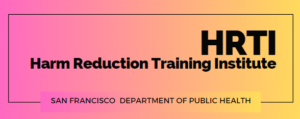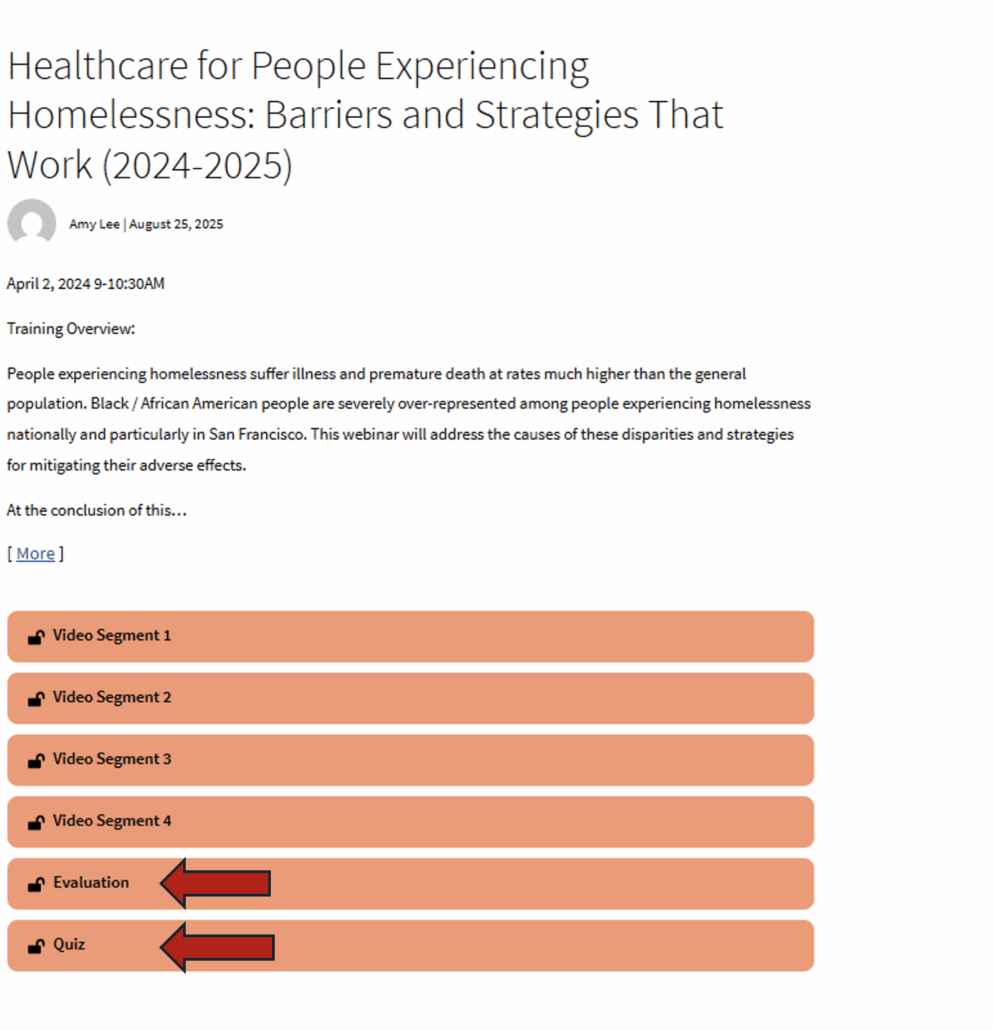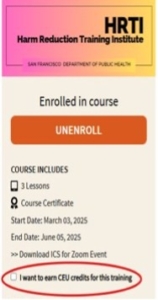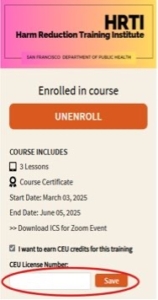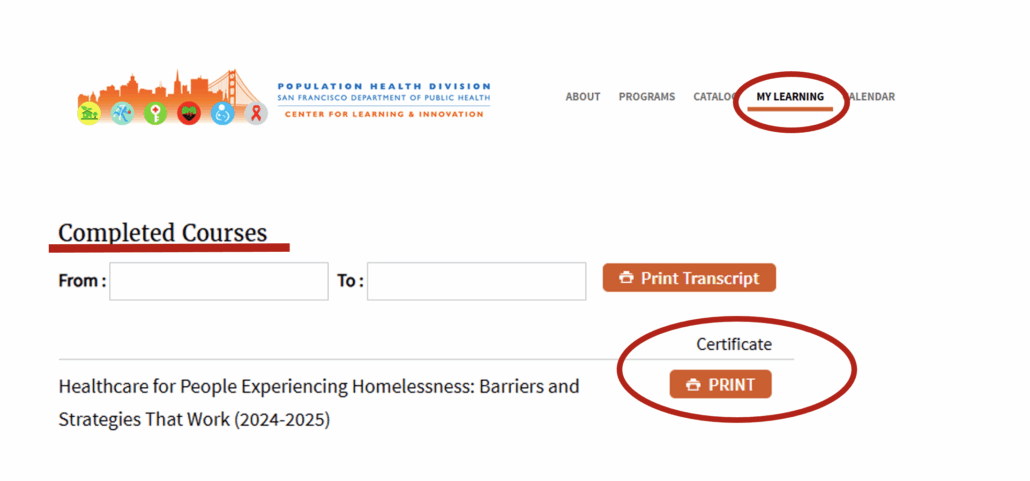
The San Francisco Department of Public Health (SFDPH) Harm Reduction Training Institute (HRTI) supports SFDPH and SFDPH-funded staff, providers, and programs that work with people who use drugs and their communities.
The goals of SFDPH HRTI are to:
- Build agency and program capacity
- Improve consumer engagement in service design and delivery
- Enhance the citywide system of care prevention and education to meet the needs of people who use drugs and alcohol in San Francisco
SFDPH-funded programs are required to integrate harm reduction principles into their service design and delivery, and all their staff are required to complete annual HRTI trainings. SFDPH Community Health Equity & Promotion Branch (CHEP) and Behavioral Health Services (BHS) collaborate with the National Harm Reduction Coalition (NHRC) and other community partners to provide monthly training to SFDPH and SFDPH-funded agency staff. HRTI training topics focus on how to work effectively with people who use drugs to support them in achieving their goals and implementing harm reduction principles to reduce stigma. Continuing Education Units (CEUs) are available from the Center for Learning and Innovation (CLI).
Please contact us at HRTI@sfdph.org.
Frequently Asked Questions
Who do I contact if I have additional questions?
If you have any questions or need assistance, feel free to reach out to us at HRTI@sfdph.org – we’re here to help!
SFDPH Policies
Resolution:
No. 10-00
Adopting a Harm Reduction Policy For Substance Abuse, STD and HIV
WHEREAS, the San Francisco Department of Public Health seeks to reduce adverse health effects to individuals, to individuals’ families and to the broader community through legal and compassionate interventions; and,
WHEREAS, the Harm Reduction model of health care offers multiple non-judgmental approaches to assist clients in their movement toward better health; and,
WHEREAS, the Harm Reduction model is client-centered and attempts to reach clients “where they are at”, to assist them in making choices that lead toward better health; and,
WHEREAS, deaths in the City and County of San Francisco due to injection drug overdoses reached 180 in 1999, the third leading cause of lost years of life; and,
WHEREAS, existing research indicates that 90% of injection drug users who have injected for more than two years are infected with Hepatitis C, and 16% are infected with HIV; and,
WHEREAS, soft tissue infection associated with injection drug use is the leading diagnosis for admission at San Francisco General Hospital’s Emergency Department, leading to 1,400 inpatient admissions in 1999 (costing $18 million), 70% of which were uninsured; and,
WHEREAS, needle exchange, a Harm Reduction program, has proven to decrease further HIV and Hepatitis C infections by providing clients with clean needles with which to inject; and,
WHEREAS, practicing safer sex reduces the likelihood of transmission of sexually transmitted diseases (STD), including HIV; and,
WHEREAS, abstinence-based programs are successful for some individuals, but not all; and,
WHEREAS, recovery from substance use, practicing safer sex and improving health status often take place in an incremental manner; and,
WHEREAS, the serious consequences of substance abuse and unsafe sex cause significant health problems for the residents of San Francisco and some harm reduction practices have been shown to mitigate these health effects, now, therefore, be it
RESOLVED that all Department of Public Health providers, including DPH contractors, who deliver substance abuse, STD, and HIV treatment and prevention services, and/or who serve drug users and abusers in their programs shall: (1) address in their program design and objectives how they will provide harm reduction treatment options, and (2) develop harm reduction guidelines.
I hereby certify that the foregoing resolution was adopted by the Health Commission at its meeting of September 5, 2000.
Sandy Ouye Mori, Executive Secretary to the Health Commission

